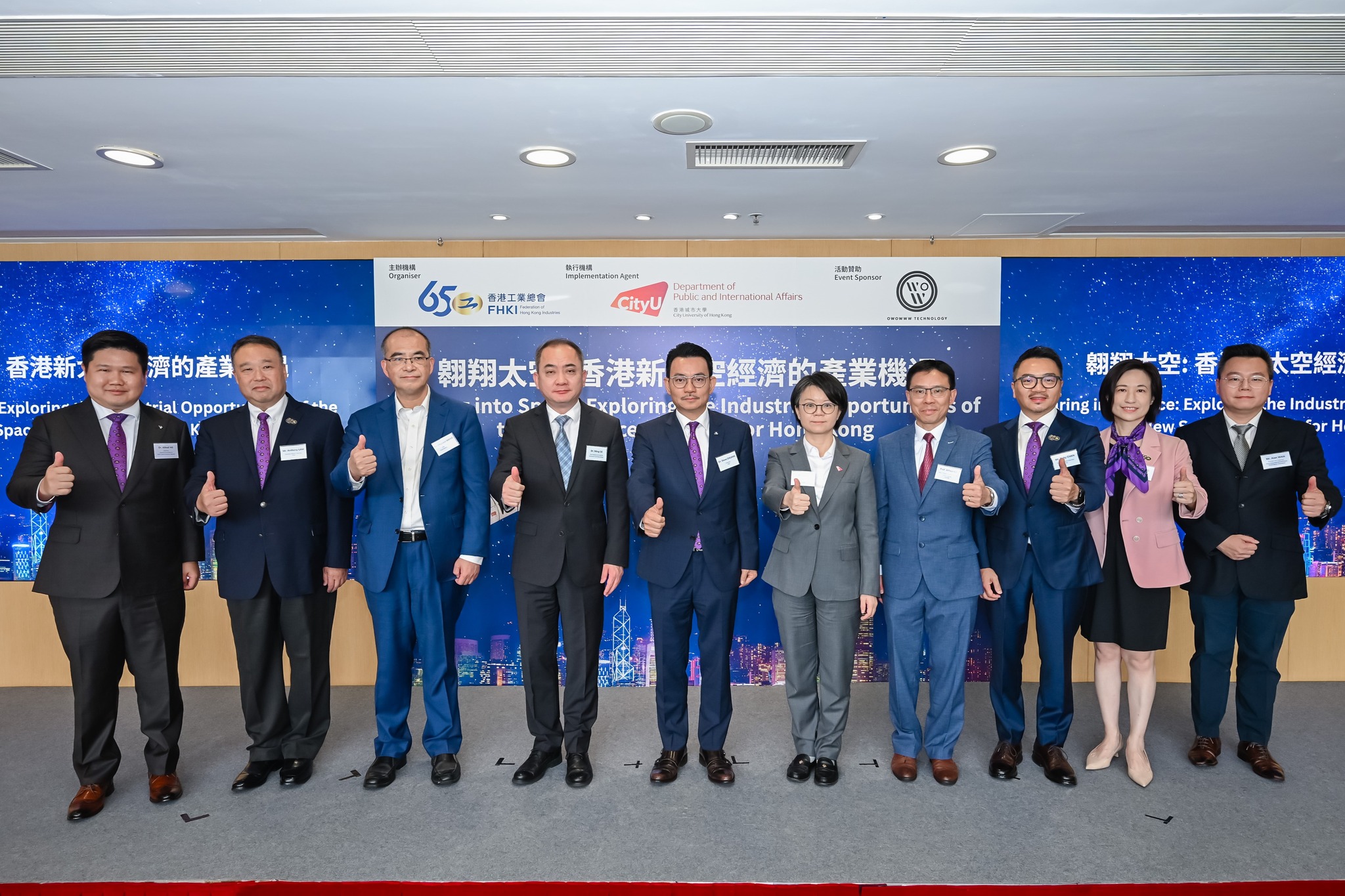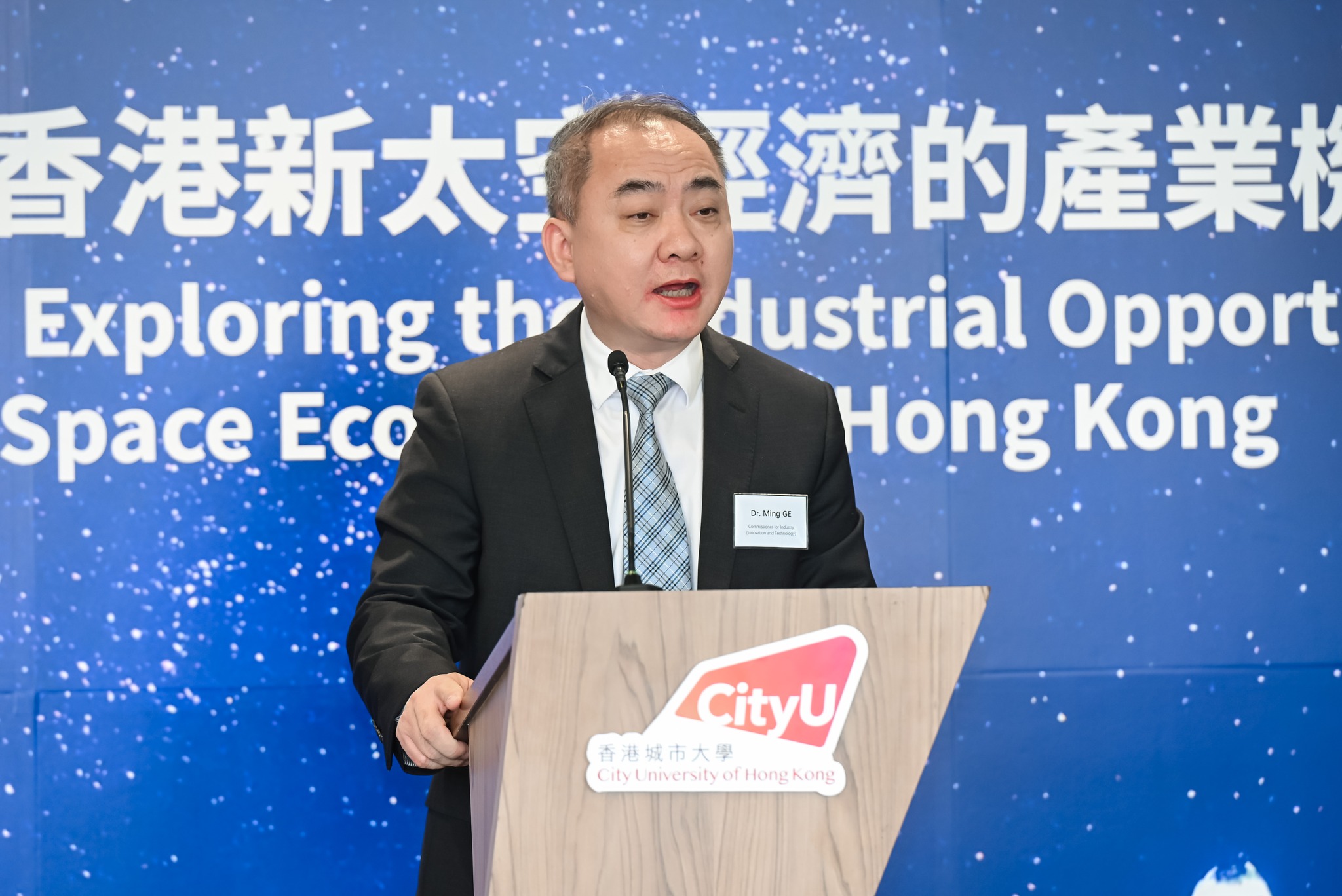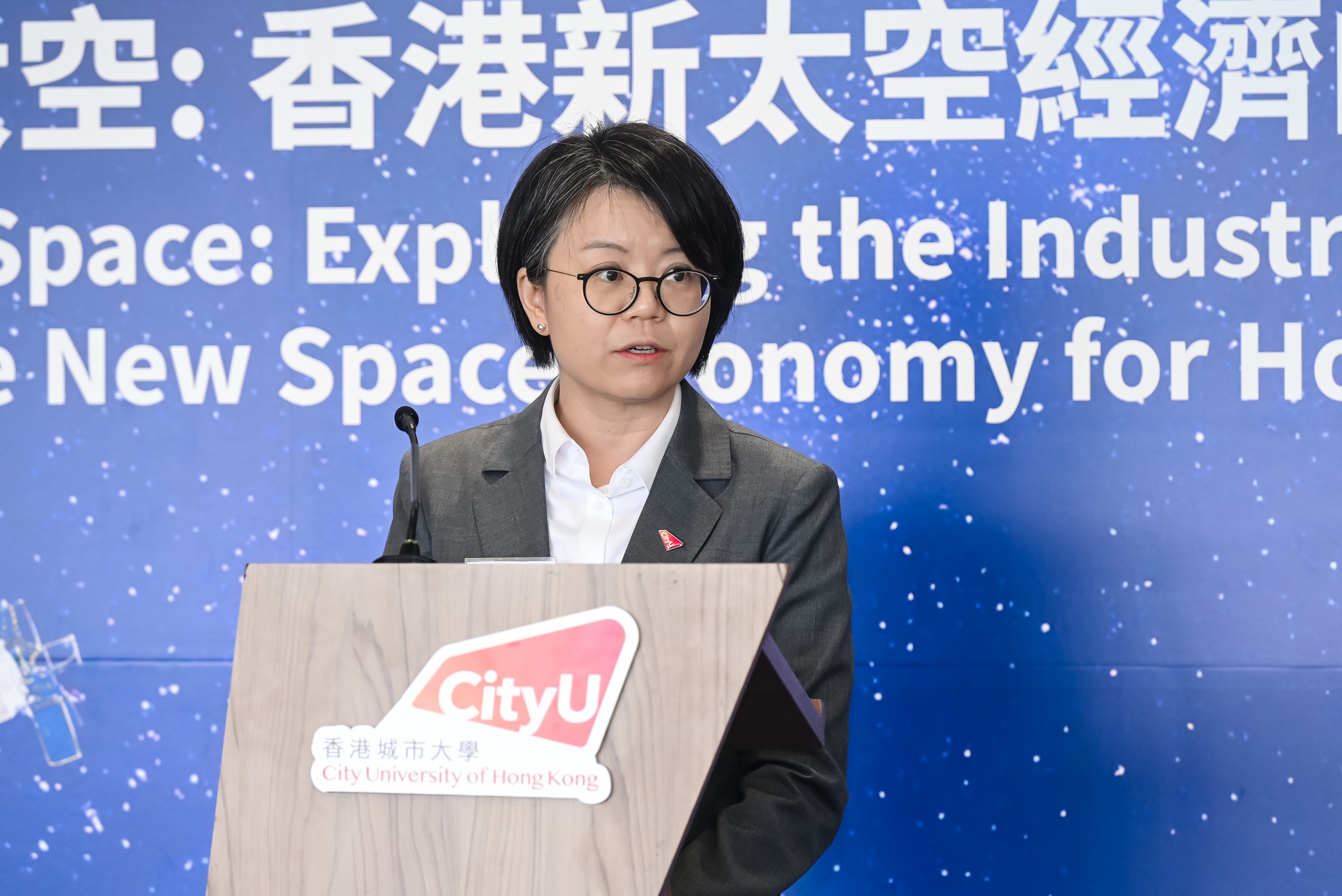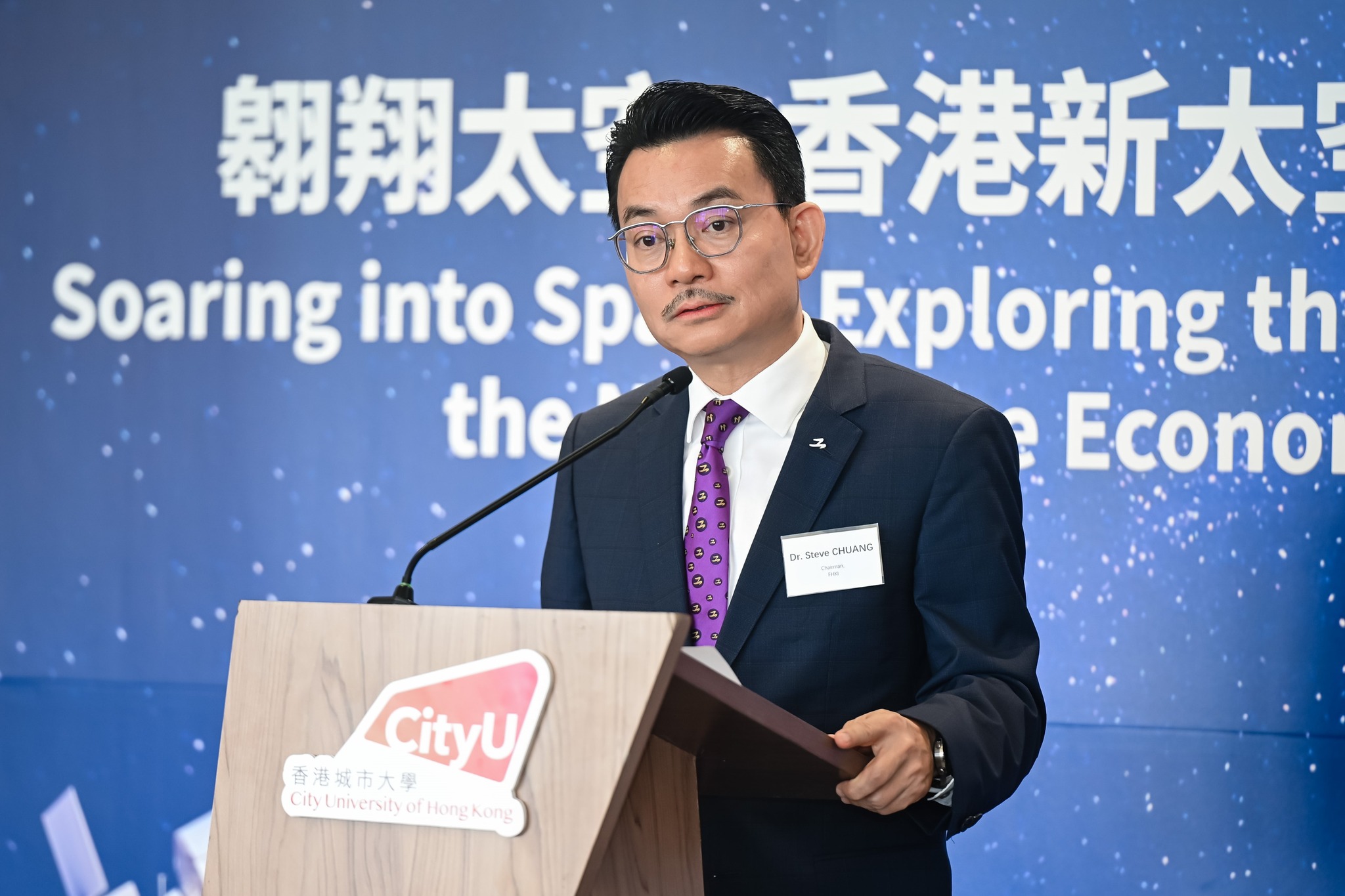
The Hong Kong Special Administrative Region was urged at a seminar to make institutional changes and to design governance strategies to capitalize on the opportunities unleashed by the development of a new space economy in Hong Kong.
The seminar — attended by government officials, academic scholars and business leaders — was held by the Federation of Hong Kong Industries and the Department of Public and International Affairs of the City University of Hong Kong on Friday to discuss a research report regarding the development prospects of a new space economy in Hong Kong.
“If Hong Kong wants to propel innovation in technologies and industries, it needs to strengthen technology commercialization so that Hong Kong’s current niches can be transformed into economic outcomes — optimizing our economic structure, pushing the I&T (innovation and technology) industry forward, and achieving high-quality economic and societal development,” Commissioner for Industry (I&T) Ge Ming said in his opening speech at the seminar.


Li Lishuai, CityUHK associate vice-president (strategic research), added: “This report actually highlights Hong Kong’s strengths in space science and engineering talent as well as financial and legal expertise, and Hong Kong can leverage these through public and private university collaboration and investment in innovation and research.”
The new space economy represents a new economic discipline, the report says. The commercialization of various space-related technologies can generate significant and long-term economic and societal impacts. The old view — that space-related technologies are only linked to basic science and military objectives — can be discarded.
The report says that Hong Kong should prioritize developing core space technologies such as satellites, drones, sensors, precision and lean manufacturing, as well as robotics technology design. Space technologies can also be applied in new materials science research, precision and urban agriculture, as well as ecological management and environmental technology. Hong Kong should leverage its expertise in law and finance to explore how it can provide international dispute resolution and financing services for space-related enterprises.
ALSO READ: Lunar soil samples, aerospace equipment on show in HK

FHKI Chairman Steve Chuang Tzu-hsiung argued that the development of the space economy can elevate the manufacturing process and drive the development of advanced industries in Hong Kong.
“With collaboration across government, industry, academia, research and investment sectors, Hong Kong should establish a foothold in the global value chain of the new space economy. We urge the administration to formulate a dedicated policy related to the development of the space economy,” he said.
The report also highlights the constraints and challenges that Hong Kong faces in developing the new space economy. Many young professionals in Hong Kong do not consider pursuing a career in engineering and basic science, and there are also insufficient incentives and support from Hong Kong’s many top universities to drive forward the commercialization of space-related technologies.
Geopolitical tensions between China and the United States and potential US sanctions against Chinese companies may make technology companies and entrepreneurs in Hong Kong feel reluctant to get involved in space-related industries, the report warns.
Alfred Ho Tat-kei, chair professor at the CityUHK’s Department of Public and International Affairs, said that Hong Kong can learn from the models established by the US Office of Space Commerce and the Singaporean Office of Space Technology and Industry by fostering more interdepartmental coordination and cross-sectoral partnerships to develop the new space economy.
The SAR government can consider establishing a special department or office to lead and facilitate initiatives related to the development of the new space economy, the report says.
“The space economy is more than what is happening in the aerospace and space research and development. Technology applications and technology services related to the space economy are great opportunities for Hong Kong’s reindustrialization. It is important to connect space technologies with the real economy,” Ho added.
READ MORE: HK students set for mainland trip to get a taste of space
The report also suggests cross-border collaboration between Hong Kong and the Chinese mainland. The SAR should forge closer relationships with Hainan province and Yangjiang city in Guangdong province, where the country’s commercial rocket and satellite launch sites are located. Closer ties should also be sought with the Nansha district of Guangdong province, where the research base of mainland commercial spaceflight and satellite launch service company CAS Space is located.


